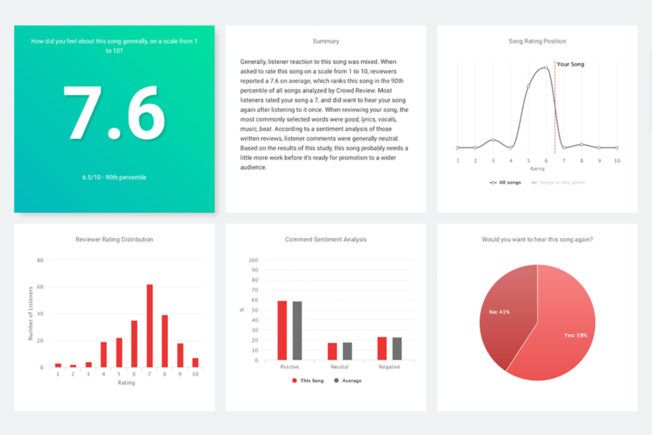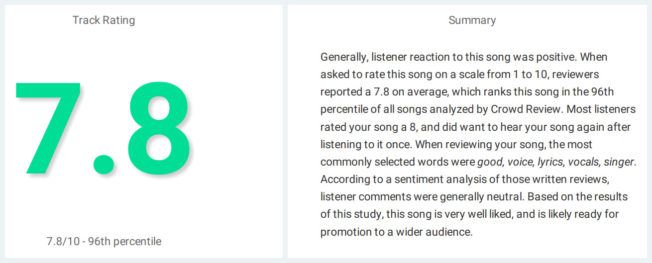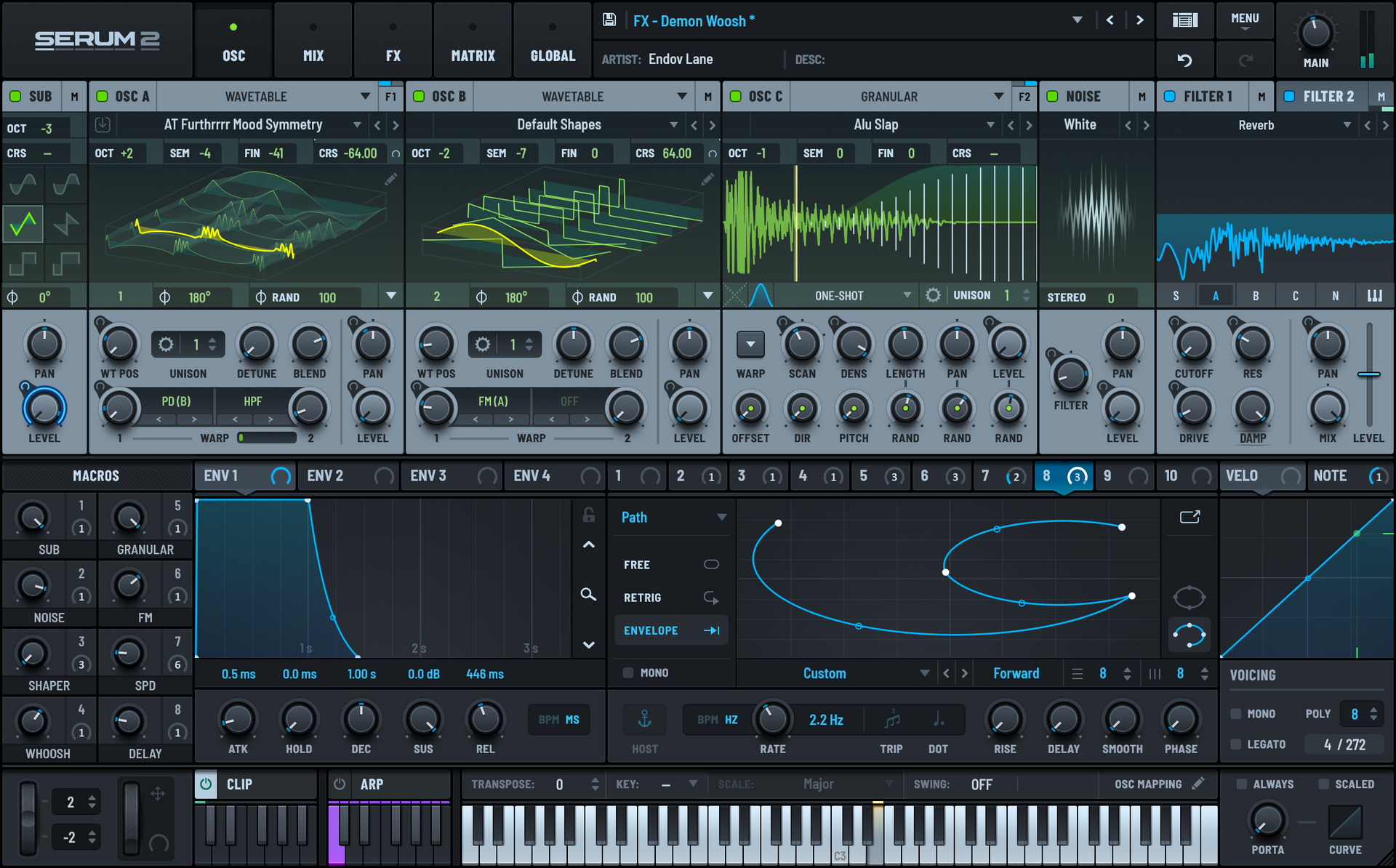How to Ask for Music Feedback to Improve Your Songs
Music feedback will help you make better-informed decisions with your music. Learn how to ask for feedback on your songs and apply it to improve your music.

Why Music Feedback is Important
Music feedback is an essential part of artist development . Seeking feedback on your songs will help you improve your music and production skills.
As musicians, we become so immersed in the music production process it makes it hard to hear our music objectivity. Useful music feedback, both positive and negative will give you a fresh perspective on your work. It also drives artistic decisions, presents new ideas, and reveals problems that may need fixing. The feedback you receive can also help with writer’s block and provides continuous learning.
What Types of Music Feedback To Expect
Knowing what types of music feedback you may receive will help you apply it. There are three common critique types:
- Technical feedback provides specific advice. It’s also the most constructive and useful kind of feedback. People with a particular skill set are best qualified to give feedback on technical aspects of your songs. For example, a mixing engineer or songwriter.
- General feedback relates to your artistic decisions. It provides general advice rather than specific technical advice. For example, adding vocals or not.
- Opinion feedback is the most common. It’s also the hardest type of feedback to apply. For example, an opinion is someone saying your song is good or bad.
How to Ask for Feedback and Use It to Improve Your Music
Services such as SubmitHub and Crowd Review have grown to be viable options for music feedback. But how do you make sure the feedback you receive from people is constructive and useful? And how do ask for song feedback without burning bridges or annoying people? Last, how do you interpret feedback on your songs?
Here are ten things to remember when asking for feedback on your music:
1. Know Why You’re Sending That Specific Song for Feedback
Are you sending your song because you’re out of ideas? Or do you have many ideas and need help deciding? Specify this to the listener. For example, “I’m still working on this track and would like to know which of the drops at 1:15, 2:08, and 3:22 is the strongest.”
Furthermore, don’t ask for feedback if you’ve stopped working on the song. Don’t waste someone’s time if you’re not going to incorporate any suggested changes.
2. Know Why You’re Sending That Song to a Specific Person
Your listener should have experience relating to whatever technical needs that may need improvement. For example, if you want feedback on something specific with your mix, ask a mixing engineer. Or if you don’t like the lyrics, ask a songwriter.
Also, don’t discount song feedback from non-music people. You don’t have to ask people to give feedback because they have musical experience. However, best not to overwhelm them with technical jargon. Try to keep things to emotional or stylistic aspects. For example, ask “How does the song make you feel” or “What artist does the song sound like?” Conversely, you may not get useful feedback asking someone without musical knowledge what they think of your mix.
Feedback doesn’t always have to come from a musical mind. For instance, my wife has a great ear for what ‘feels right.’ A simple yes or no or “I don’t like that sound” from someone that won’t over analyze can go a long way. Matt Bang, Icon Collective
Matt Bang, Icon Collective
3. Know What Specific Aspects of the Song Need Work
Don’t expect the listener giving you music feedback to critique everything. Most feedback covers one or two aspects of a song. So, it’s crucial to be explicit about what areas of the song you need help improving. For example, ask “What do you think of the lyrical concept and song structure?” Asking for specific feedback will also give you in-depth advice that’s easier to apply.
Specific music feedback is always more useful than vague opinions like “this song is awesome!” Moreover, general feedback takes more time and can be overwhelming for a listener. It requires several listens and provides less helpful advice than technical feedback. Again, if it’s something technical, ask someone with that specific skill set.
4. Know Your Artistic Objective for the Song
Music evokes an emotional feeling. Knowing how your music makes people feel is important. Besides asking for technical feedback, ask how your song makes the listener feel. For example, does it make them feel happy or sad? Also, know what emotion you are trying to convey with your music? For example, ask “I’m trying to evoke x/y/z emotion. Does it come through?”
Evoking a specific emotion is the hardest part of writing for many songwriters and music producers. Also, bias plays a role in the way we feel about music. For example, we all have preferences on the genres or styles we like and dislike. So, if you think the feedback comes out of a certain bias, communicate that to the listener. Let them know your artistic objective.
5. Know Your Commercial Objective for the Song
If you have a specific commercial objective for the song, be specific about it. For example, are you releasing the song for club play, radio, sync/licensing , etc.? Let the listener know how you plan on using the song.
This feedback may be harder to apply. It’s also hard to get useful feedback from someone who doesn’t have experience in a particular industry. However, knowing your objective may influence the feedback, even if the listener doesn’t have a foot in that world.
6. Ask for Music Feedback in a Professional Manner
If you’re emailing, keep it simple, concise, straight-to-the-point, and polite. Many people will not read a wordy or sloppy email. 100 words or less is plenty.
Also, personalize your message. For example, write a sentence or two that compliments the listener. Let them know why you’re seeking their feedback.
Last, always thank people for their time!
Even if it’s not what you want to hear, always say thank you. People are giving you their time, their ears, and their honest thoughts in hopes to help you improve. Kerry Leva, Icon Collective
Kerry Leva, Icon Collective
7. Sending Your Music to People You Don’t Know
It’s crucial to send your music to people who will give you credible feedback. However, one day you’ll send your music to people you don’t know. Here are things to remember:
- Be cautious about asking for feedback on your music from someone you don’t know. People you don’t personally or are not into the music you make are likely to give you worthless feedback.
- Send your music to people involved in the music industry. For example, a DJ that plays songs similar to your music, a music supervisor who syncs songs like yours, or someone who listens to the genre of music you create.
- Remember, the vast majority of people don’t have time to give general feedback to anyone who asks for it.
It’s important to have a select few people that you trust to give you honest feedback. Even better if that network includes people with different strengths! For instance, I send my stuff to my best friend for mix critique. I also have a couple of other friends who are good at picking out nuances in my arrangements and writing. Moreover, knowing who to ask for feedback, and WHEN, can streamline the process and help keep you focused. Kerry Leva, Icon Collective
Kerry Leva, Icon Collective
8. How to Respond to Music Feedback
As musicians, we pour our heart and soul into our music. It’s crushing to read negative feedback. However, it’s vital you respond well to any negative feedback.
If you plan on making a career in the music business, get used to criticism and hard truth. If you disagree with the feedback, thank the listener for their opinion and let him know you’ll keep it in mind. Be mindful and avoid attacking someone for giving their opinion. You won’t get honest feedback with that behavior.
Also, you don’t have to apply all the feedback you receive. But don’t deflect it either. A listener will never give you feedback again if you push back on their assessment. Remember, don’t waste someone’s time if you’re unwilling to accept critical feedback. So, avoid getting into a debate with the person taking the time to help you!
When looking for feedback, are you prepared to hear the truth? Some just want validation. I’ve been one of those people. For instance, I played something for Kendrick’s A&R, and he liked it. But he gave me specific feedback on what to change before sending him the track. I made excuses on why I thought it was better as is. It was a MISSED OPPORTUNITY. Matt Bang, Icon Collective
Matt Bang, Icon Collective
9. Build Your Network
Building relationships and networking in the music industry is always helpful. Get out and connect with people in the music industry, regardless of their status. Try to meet other artists, producers, DJ’s, publicists, booking agents, label staff, fans, and anyone else in the music scene. These connections could open new opportunities and provide more helpful feedback.
10. Music Feedback Services
Music feedback services like Crowd Review , Audiu , and SubmitHub offer detailed feedback and statistic reports. The in-depth feedback helps you make better-informed decisions about composition, production, and promotion.
Crowd Review track summary for Half-Truth “Get Up.”

Consider using Crowd Review or Audiu for works-in-progress and SubmitHub for finished/released tracks. These services are open to the public for a fee. Sending your songs to music-loving randos provide anonymous, relatively impartial feedback, and excellent analytics reports. Some things covered in the reports are mood, genre, songwriting, production quality, audience identity, and commercial potential.
The Take-Away
Be nice, specific, and know why you’re asking for feedback. Also, thank people for their time! And don’t be afraid to combine feedback from people you know with anonymous feedback from services like Crowd Review, Audiu, and SubmitHub.



